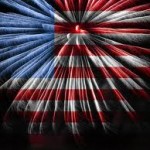– Caitlin Sellers
An outdoor barbecue with family, friends, and food is a great way to spend a summer evening, but if fireworks or sparklers are part of your plans, here’s what you should know.
Consumer fireworks are legal in most states, with only five states instituting an all-out ban. In fact, more and more states are relaxing restrictions on private-use fireworks. But legal doesn’t necessarily mean safe — home-use fireworks can be dangerous. According to the Consumer Product Safety Commission (CPSC), an estimated 7,000 people were treated in emergency rooms for burns and other fireworks-related injuries in 2008, with children and young adults under 20 sustaining more than half of those injuries.
Because of the dangers, we recommend taking advantage of local professionally organized fireworks shows in your area instead (they’re far more impressive anyway!). But if you still plan to light up the sky on your own, follow these tips from the CPSC and the National Council on Fireworks Safety.
Before you begin, make sure you have
- A bucket of water or hose. Water is important for cooling off spent sparklers, fully extinguishing fireworks, and in case of fire.
- A clear, flat area away from houses, spectators, leaves, and flammable materials.
- Closed-toed shoes.
- Safety glasses for the person igniting the fireworks.
Don’t Forget Your Pets!
There are ways to desensitize a pet to fireworks and related noise, but it takes time and preplanning. If this holiday is right around the corner, there are a couple of things owners can do to assist their pets through this short period of potential trauma. The best preparations, that you can use at such short notice, is to make sure that your pet has ID tags with current information on them, and that they are safely secured both before and through the holiday period.
- Crate your pet at home
- Kennel the pet professionally
- Keep the pet confined/restrained indoors
- Use drug therapy (tranquilizers/anti-anxiety medications as prescribed from your veterinarian)
- Use alternative therapy (your holistic veterinarian or therapist will provide a list)
- Play classical music or jazz to soothe pets and camouflage other noises
Sparkler Tips
- While many consider sparklers to be safe, it’s important to remember that you are, in fact, playing with fire: Sparklers can burn at more than 1,000 degrees F, and caused an estimated 800 injuries in 2008.
- Don’t allow children under the age of 12 to handle sparklers.
- Show older children how to hold sparklers at arm’s length, and don’t let them run with or wave the sparklers.
- Stand at least six feet away from another person while using sparklers.
- To hand a sparkler to another person, give him or her an unlit sparkler and then light it.
- Don’t hold a child in your arms while holding a sparkler.
- Drop spent sparklers into a bucket of water.
Other Fireworks Tips
- Always read and follow the directions.
- Never relight a failed firework — wait 20 minutes before placing it in a bucket of water.
- Onlookers must keep a safe distance from the person igniting the fireworks.
- Children should not play with or ignite fireworks.
Have a wonderful 4th of July! Stay Safe! www.LiveSafeUSA.com


